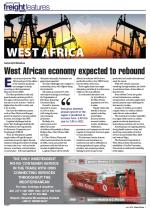Nigeria, the West African giant and Africa’s biggest economy, is expected to experience its worst recession in four decades during 2020, according to a World Bank report: Nigeria in Times of Covid-19: Laying Foundations for a Strong Rec over y.This is largely due to the government’s failure to diversify the economy away from oil.
Before the pandemic, the Nigerian government had been grappling with weak recovery from the 2014 oil price shock, with GDP growth averaging around 2.3% in 2019.Over the past five years, oil has represented more than 80% of exports, 30% of banking-sector credit, and 50% of general government revenues.
A large share of the country’s non-oil industrial and service sectors also relies on foreign-exchange inf lows generated by the oil industry. The protracted slump in global oil prices has reduced Nigeria’s general government revenue from an already low 8% of GDP in 2019 to a projected 5% in 2020.
“This sudden drop in revenue comes just when fiscal resources are urgently needed to contain the Covid-19 outbreak and stimulate the economy,” says the World Bank report.Covid-19 is also having a direct impact on consumer spending power.
In addition to local job losses, remittances are down. Around half of Nigerian households supported by funds from a relative working abroad are classified as poor.It is estimated that five million Nigerians will slip below the poverty line in 2020 as a result of the economic fallout from Covid-19.The World Bank recommends that Nigeria trade its way out of the economic slump, starting with opening all borders, including those closed in August 2019 to curb the smuggling of rice, fuel and other goods.
“The phased removal of non-tariff barriers such as import bans and foreign exchange restrictions would also contribute to the sustained competitiveness of Nigeria’s firms and could, if bans were converted into tariffs, increase revenue,” adds the report

